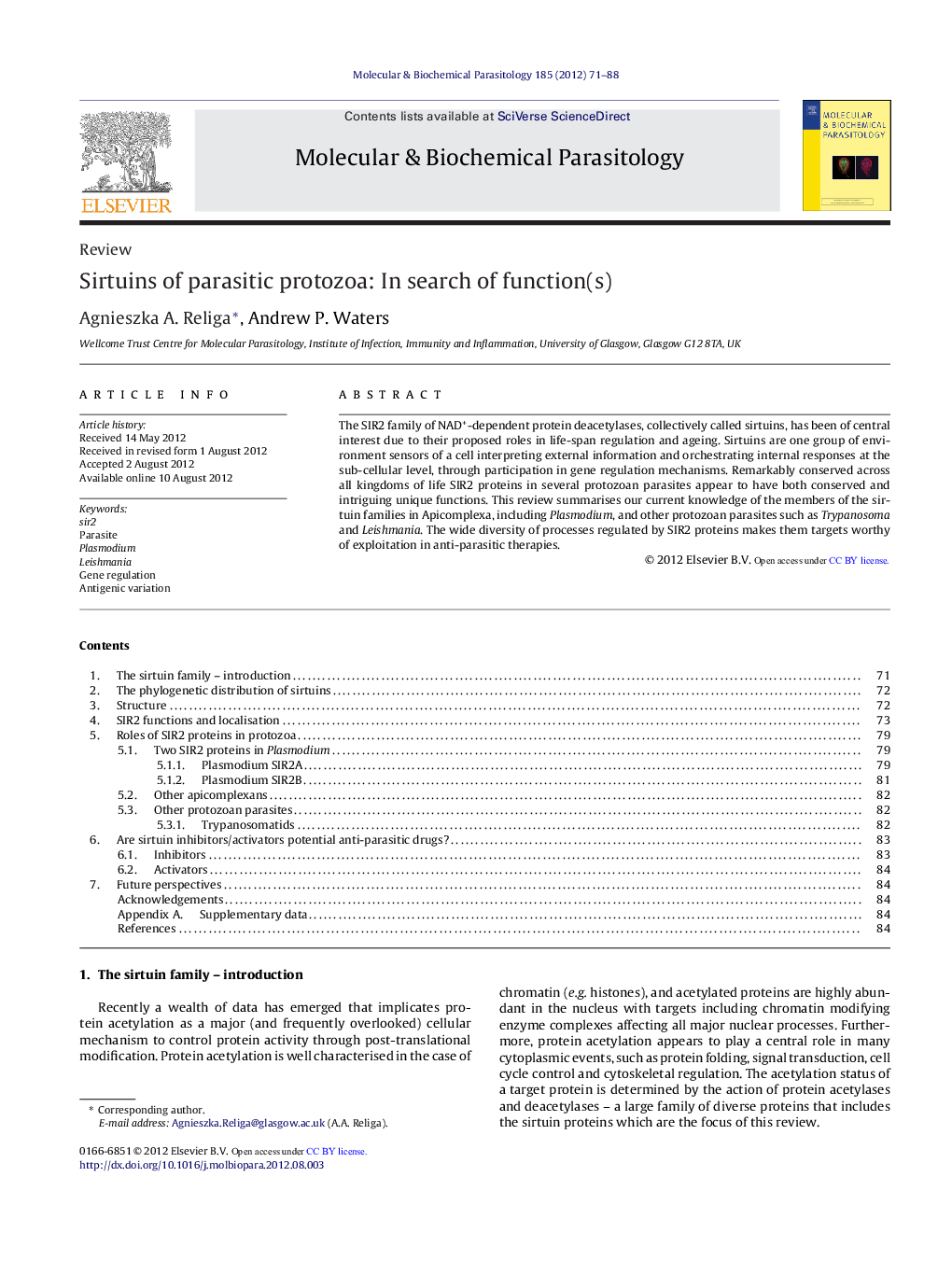| Article ID | Journal | Published Year | Pages | File Type |
|---|---|---|---|---|
| 5915606 | Molecular and Biochemical Parasitology | 2012 | 18 Pages |
The SIR2 family of NAD+-dependent protein deacetylases, collectively called sirtuins, has been of central interest due to their proposed roles in life-span regulation and ageing. Sirtuins are one group of environment sensors of a cell interpreting external information and orchestrating internal responses at the sub-cellular level, through participation in gene regulation mechanisms. Remarkably conserved across all kingdoms of life SIR2 proteins in several protozoan parasites appear to have both conserved and intriguing unique functions. This review summarises our current knowledge of the members of the sirtuin families in Apicomplexa, including Plasmodium, and other protozoan parasites such as Trypanosoma and Leishmania. The wide diversity of processes regulated by SIR2 proteins makes them targets worthy of exploitation in anti-parasitic therapies.
Graphical abstractDownload high-res image (151KB)Download full-size imageHighlights⺠General concise introduction into the world of SIR2s. ⺠Overview of the SIR2 family members' representation in parasitic protozoa, with phylogenetic classification. ⺠Summary of findings on SIR2 proteins structure, function and localisation in parasitic protozoa. ⺠Mention of potential therapies stemming from SIR2 studies in parasitic protozoa.
